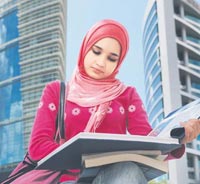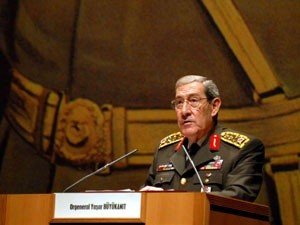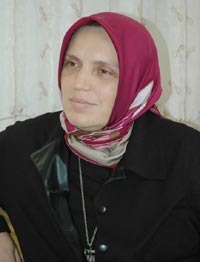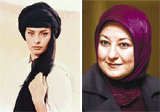Domestic Media Obsessed with Malaysia

There were many who had interpreted the overwhelming victory of the religious Justice and Development Party (AKP) in the general elections of 22 July as the beginning of a new era.
It was thought that now the AKP would show its real colours and start on its project of Islamicisation. The party's current efforts to write a new constitution, albeit up to now with no participation from other segments of society, has been seen as an effort to allow the headscarf into public life.
American comparison of Turkey and Malaysia
Now there is a heated debate on whether or not Turkey faces a threat of increasing Islamicisation. Recent American comparisons of Turkey and Malaysia as two moderate Muslim states have had strong reactions in Turkey.
President Gül himself has argued that Malaysia is very different from Turkey. Now the domestic media has taken up the theme, asking, "Could Turkey become a Malaysia?"
Reporters sent to Malaysia
"Milliyet" newspaper has sent its reporter Ece Temelkuran to Malaysia to make comparisons. In her "This is Malaysia" series, today's headline is "No food or money for children during Ramazan". Underneath it says, "The practices in Malaysia, the centre of 'moderate Islam' show how 'personal' it is when 'political Islam' is described as a 'personal choice'."
"A typical example are primary school children who are forced to stay hungry: during Ramazan the school does not give a lunch break, the canteen is closed, but people are free not to fast!"
The "Vatan" newspaper also continues a series analysing Malaysia. Today, Prof. Dr. Nur Vergin, "Zaman" journalist Ali Bulac and "Posta" journalist Mehmet Barlas try to answer the question of whether the AKP will Islamicise society through state mechanisms.
"Turkey will not become Malaysia"
Ezgi Basaran and Sebati Karakurt of the "Hürriyet" newspaper spoke with Zeinah Anwar, from the Sisters in Islam (SIS) group for the newspaper's series "Malaysian women from tradition to modernity". Anwar told the journalists that Turkey would not turn into a Malaysia.
Alev Alatli of the "Zaman" newspaper took an ironic stance; comparing the Turkish and the Malaysian economy, she said, "I wish we could become Malaysians."
In Turkey "no pressure on uncovered women"
In Hasan Bozkurt's interview with Prof. Dr. Metin Heper of Bilkent University, the academic said that "I have never seen pressure put on uncovered women."He was referring on current discussions of "neighbourhood pressure" (read peer pressure) which covered women are said to apply.
Powerful Fetva Council
The "Sabah" newspaper covered a series published by the weekly "Yeni Aktüel" magazine, owned by the same group. Under the heading "Malaysia: Neither Fully Laicist Nor Fully Islamic" it read "Malaysia, which together with Turkey Americans had shown as an example of moderate Islam, has a "laicism" article in its constitution, but it also has quite a powerful Fetva Council".
The newspaper's editor-in-chief Ergun Babahan wrote, "As there is talk of a constitution which could change the balance of power in Turkey, those who favoured education for headscarved women recently have suddenly started saying that it is too early."
In the Kemalist "Cumhuriyet" newspaper, Mahmut Güler has prepared a series entitled "The reality of Malaysia", with today's heading being "A country of compulsory Islam".
Underneath it says, "The official religion of Malaysia, which is 60 percent Muslim, is Islam. Those who do not fast are punished with prison sentences or fines. At university graduation ceremonies all women, be they Muslims or not, have to wear a headscarf. If a woman wears revealing clothes, she is taken to court for corrupting morality." (TK/AG)
KURDISH QUESTION
PKK Ceasefire to be Terminated on 31 October?

KCK CASE
Court Dismissed Request for Defence in Kurdish

7th Istanbul Gathering for Freedom of Thought

CONSTITUTIONAL AMENDMENTS
58 Percent Said "Yes" to Constitutional Reform Package

Rights Organizations 3 Years ahead of Foreign Minister








